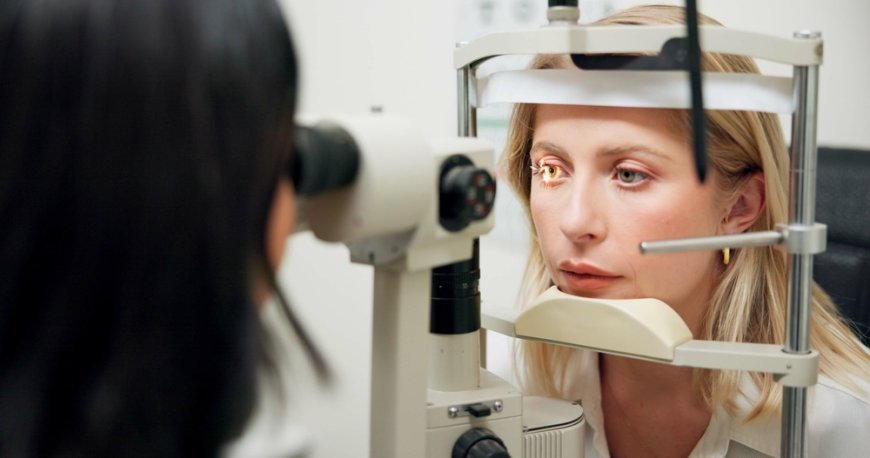Why Eye Exams Matter More Than You May Realise

Why Regular Eye Exams Are More Important Than You Think
When was your last eye test? You're not alone if it’s been over two years or if you’ve never had one. Many believe eye exams are only necessary when their vision becomes blurry or they need new glasses. But regular eye tests do far more than just update your prescription. In fact, they can reveal hidden health issues, prevent severe eye conditions, and protect your overall well-being.
What Happens During an Eye Exam?
A comprehensive eye exam isn’t just a quick vision check. It’s a thorough assessment of your eye health and visual performance. During the exam, an optometrist will:
-
Check your visual acuity and prescription
-
Examine the health of your retina, cornea, and optic nerve
-
Measure eye pressure to screen for glaucoma
-
Evaluate eye coordination and focusing ability
-
Look for signs of conditions like cataracts, macular degeneration, and diabetic retinopathy
With advanced technologies like OCT scans and retinal imaging, optometrists can detect subtle changes before they cause noticeable symptoms.
Early Detection of Eye Conditions
Many serious eye diseases develop gradually and without noticeable symptoms in their early stages. By the time vision changes become apparent, significant—and sometimes irreversible—damage may already have occurred. That’s why regular, comprehensive eye exams are essential, especially for adults over 40 or those with risk factors like diabetes or a family history of eye disease.
Routine screenings allow for the early detection and treatment of conditions such as:
-
Glaucoma – Often referred to as the “silent thief of sight,” glaucoma involves increased pressure in the eye that damages the optic nerve over time. It typically develops without pain or early symptoms, making pressure and visual field tests crucial for early intervention.
-
Macular Degeneration (AMD) – This condition affects the central part of the retina, which is responsible for sharp, straight-ahead vision. While early-stage AMD may not impact daily life noticeably, early detection and lifestyle changes—such as nutritional support and UV protection—can slow its progression and help preserve vision.
-
Diabetic Retinopathy – A complication of diabetes that damages blood vessels in the retina, this condition often develops without any initial symptoms. Left untreated, it can result in vision loss or blindness. Regular eye exams can catch early warning signs even before vision is affected.
Unfortunately, these conditions rarely announce themselves with obvious symptoms, especially in the beginning. That’s why preventive eye care is not just a recommendation it’s a necessity.
Even if you feel your vision is fine, an annual or biannual eye check-up can detect changes that you might not notice on your own. Protecting your sight starts with staying proactive.
Vision Changes Happen Gradually
Even if you think your vision is fine, it may change subtly. Many people adapt to slight deterioration without realising it. You might be straining your eyes, getting more headaches, or experiencing night driving difficulties, all signs that your eyes are working harder than they should.
Routine exams can fine-tune your prescription and improve your daily comfort, concentration, and performance, whether reading, driving, or using screens.
Eye Exams Can Reveal Other Health Problems
Your eyes are a window into your overall health. During an eye exam, optometrists can sometimes detect early signs of systemic health issues such as:
-
High blood pressure
-
High cholesterol
-
Diabetes
-
Autoimmune diseases
-
Brain tumors
Changes in the blood vessels, nerves, or structure of the eye may point to broader health concerns, prompting further medical evaluation.
Children and Seniors: Extra Attention Needed
Children should have their first eye exam before starting school. Poor vision can impact learning, behaviour, and development. Annual exams ensure kids have the visual tools they need to thrive.
Seniors, meanwhile, face a higher risk of cataracts, glaucoma, and age-related macular degeneration. Regular exams help maintain independence and quality of life in later years.
Trust Your Local Eye Health Experts
At Optikal Opticians, we understand the importance of early detection and personalised care. With over 15 years of experience and state-of-the-art equipment, we offer detailed eye examinations beyond the basics.
Our team takes the time to explain your results, answer your questions, and create a tailored care plan that fits your lifestyle and vision needs.
How Often Should You Get an Eye Exam?
-
Adults (18 - 60): Every two years
-
Children (under 16): Every year, or as recommended
-
Seniors (60+): Annually
-
High-risk individuals (e.g. diabetics, those with a family history of eye disease): As advised by your optometrist
If you experience sudden changes in vision, eye pain, flashes of light, or floaters, don’t wait to book an exam immediately.
Final Thoughts
Your vision is one of your most valuable senses, yet it’s easy to take for granted. Regular eye exams are about more than seeing clearly. They’re a powerful tool for protecting your long-term health, catching issues early, and improving your quality of life at any age.
Whether it’s been a few years or you’ve never had an eye test, now is the perfect time to prioritise your eye health.
What's Your Reaction?































































